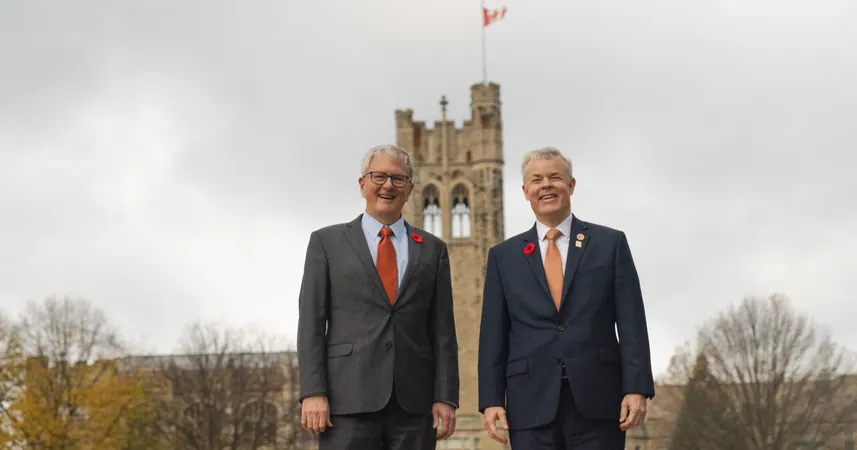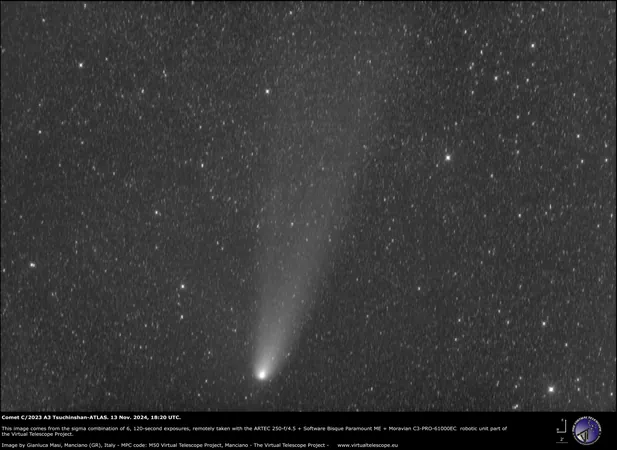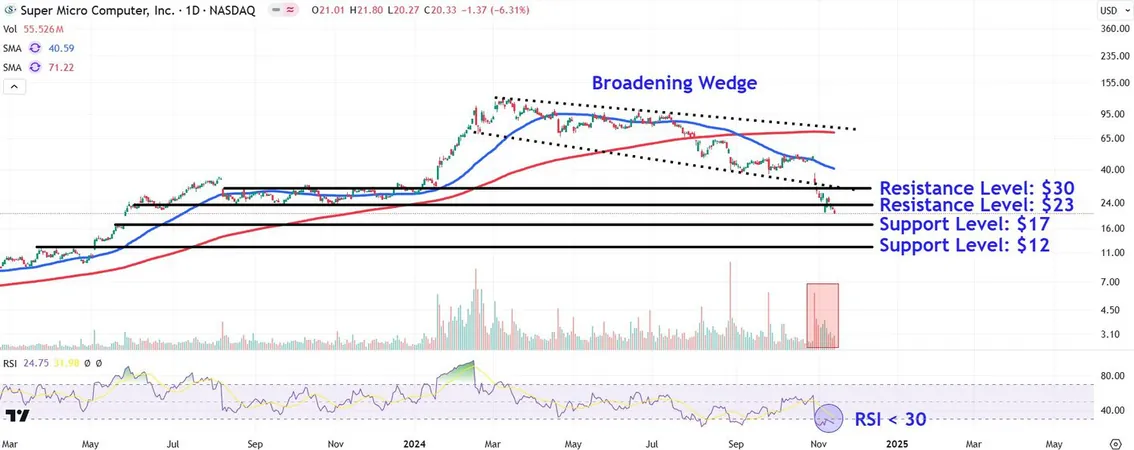
U.S. Consul General Baxter Hunt Spotlights Western University’s Research Excellence
2024-11-04
Author: Amelia
In a significant visit on October 31, Baxter Hunt, the U.S. Consul General in Toronto, met with leaders and researchers at Western University, underscoring the strong academic and research links between the institution and agencies across the border. This visit not only celebrated Western's commitment to innovation but also reiterated the important collaboration between Canadian and American universities.
During the visit, Hunt toured the state-of-the-art Imaging Pathogens for Knowledge Translation (ImPaKT) facility, a groundbreaking center designed to enhance understanding of infectious diseases through advanced imaging technologies that allow real-time visualization of infections. "I was truly impressed with the work being produced here in entrepreneurship, climate research, and health," Hunt remarked. He emphasized the collaborative efforts that enable powerful partnerships focused on addressing global challenges.
Over the last five years, Western researchers have co-authored over 7,000 publications with U.S. counterparts, with Harvard University and the Mayo Clinic among the most frequent collaborators. The university has also secured significant funding from the National Institutes of Health (NIH) for research focused on critical areas such as neuroscience and aging studies, underlining its position as a research powerhouse.
Hunt's visit also highlighted the Schulich School of Medicine & Dentistry's recent achievements, which include receiving more than $7.5 million in NIH funding to support cutting-edge biomedical projects. This funding supports a multitude of impactful studies, including new approaches to HIV vaccine design and understanding viral impacts on cognitive health.
Dr. John Yoo, the dean of Schulich, pointed to the facility's advanced capabilities, encompassing one of Canada’s leading high-containment environments focused on infectious diseases. He said, "Our scientists are making breakthroughs that can help governments and industry prepare for major health threats."
Additionally, two researchers, Eric Arts and Dr. Robyn Klein, are leading groundbreaking NIH-funded projects. Arts focuses on HIV transmission dynamics as part of a nearly $2.4 million grant, aimed at enhancing vaccine efficacy. Meanwhile, Dr. Klein, newly recruited to establish a unique research program on infectious diseases’ effects on cognition, is investigating virus-induced encephalitis and its long-term impacts.
Western’s ImPaKT facility, which opened in 2019, continues to provide invaluable insights into the mechanisms of infectious diseases, including the COVID-19 virus. With the support of government funding, new developments will further enhance research capabilities, including a microbial transmission facility that will simulate real-world conditions for studying viral transmission.
"This groundbreaking infrastructure will attract industry leaders and public health officials seeking innovative strategies to tackle infectious diseases," Arts explained.
The cooperation between the U.S. and Canada in research and education is pivotal in overcoming global health challenges. As Western continues to nurture its relationships, the future looks promising for collaborative advancements in science and health research that benefit both nations.









 Brasil (PT)
Brasil (PT)
 Canada (EN)
Canada (EN)
 Chile (ES)
Chile (ES)
 España (ES)
España (ES)
 France (FR)
France (FR)
 Hong Kong (EN)
Hong Kong (EN)
 Italia (IT)
Italia (IT)
 日本 (JA)
日本 (JA)
 Magyarország (HU)
Magyarország (HU)
 Norge (NO)
Norge (NO)
 Polska (PL)
Polska (PL)
 Schweiz (DE)
Schweiz (DE)
 Singapore (EN)
Singapore (EN)
 Sverige (SV)
Sverige (SV)
 Suomi (FI)
Suomi (FI)
 Türkiye (TR)
Türkiye (TR)